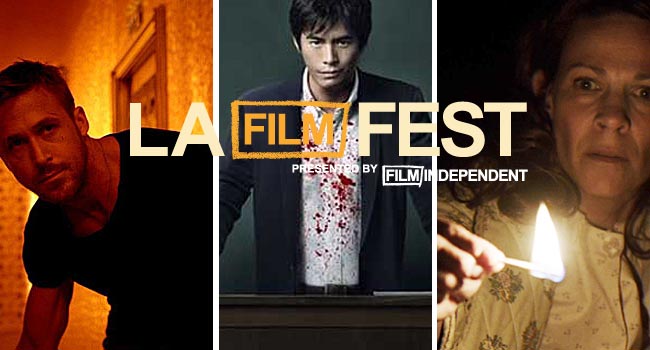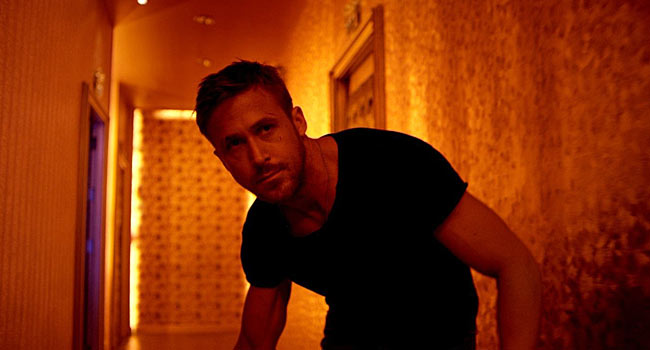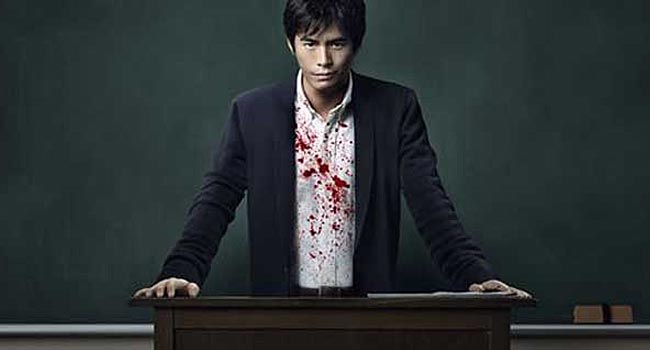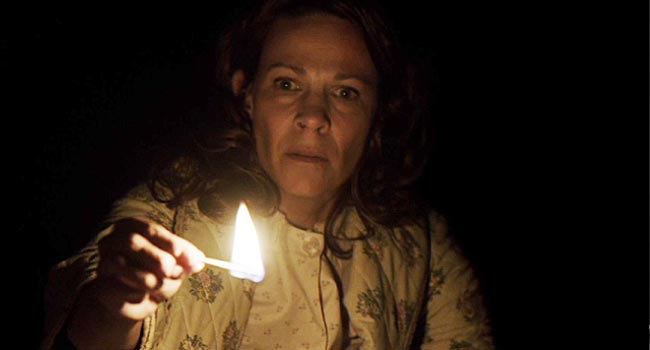LA Film Fest Reviews: Only God Forgives, Lesson of Evil, The Conjuring

Only God Forgives

Only God Forgives is director Nicholas Winding Refn’s most bizarre film yet, even more so than the inter-dimensional Viking picture Valhalla Rising. The marketing for his new film suggests an extension of the beloved Ryan Gosling fueled mayhem seen in Drive. However, that’s a trick. Refn refuses to repeat himself and that is not necessarily a bad thing. During the introduction to Only God Forgives Refn compared both films to drug experiences; that Drive is like doing really good cocaine all night and Only God Forgives is like doing acid in college.
The conflict begins after the elder of two psychotic brothers meets his maker for raping and murdering a young prostitute in Bangkok, where they run drugs together, and their even more psychotic mother arrives screaming for the killer’s blood. Ryan Gosling plays, Julian, the younger brother, who must deal with the complex business of revenge involving a high ranking Thai police captain.
Now that the plot has been described, forget it. Refn focuses the film on Julian’s Oedipal relationship to his mother (she mentions that he killed his own father to protect her) and police captain Chang’s sadistic stranglehold on Bangkok’s underworld. He visualizes this by obsessing over various visual metaphors for each character. Julian’s hands act as his sexual organ and his mode of violence as a boxer. Chang eventually castrates him figuratively, by severely beating him in a boxing match. This motif also makes for some very strange love scenes. Chang, Refn’s villain, rules the screen with long mesmerizing karaoke numbers that symbolize his control over Bangkok’s underworld. The Thai music during these scenes is just as enchanting as Cliff Marinez’s wonderful score. These musical driven sequences dominate most of the film’s screen time that call to mind moments in David Lynch’s early films.
Only Kristen Scott Thomas’s turn as Julian’s deranged mother disrupts the stillness of the film. She proves to be far more of a monster than Chang and steals every scene she’s in. The best moment of the film pits her against Julian who only wants to impress her with his pretty girlfriend. It is one of the few scenes with dialogue. Luckily, cinematographer Larry Smith’s images drive the film and truly establish the hallucinatory tone. If you’re not enchanted by Refn’s strange hang-ups, you’re not likely to enjoy the film, but many of the haunting images and unexpected scenes linger long after the lights come up.
RATING: 6
Lesson of Evil

Takashi Miike’s batshit crazy return to form, Lesson of Evil, will truly appease any fan of bad taste. After a droll remake of samurai classic Hara-kiri, Miike jumps back into the horror genre with his wicked sensibility intact. Lesson of Evil takes place at an average Tokyo high school where teachers grapple with the everyday problems of bullying, cell phone cheating, and teacher-student sexual assault. Super-stud English teacher Hasumi struggles to right all his school’s wrongs as he helps a student extricate herself from a blackmailed sexual relationship with the gym teacher and proposes to install cell phone jammers to eradicate cheating. But soon teachers and students become suspicious of Hasumi’s squeaky-clean persona. Miike masterfully balances a massive cast of students and teachers, while sticking closely to Hasumi’s point of view. In doing so, he establishes a high school drama while exposing subtle cracks in Hasumi’s façade. Much like his breakthrough film Audition, Miike abruptly changes directions mid-film and pulls out the rug from under audiences.
The second half of Lesson of Evil shifts into a psycho-horror comedy with an insanely un-politically correct plot twist that only could have originated from the culturally insensitive nation of Japan. Miike proves himself as a master of tone and character as he shifts from gruesome violence to side-splitting humor all within the pull of a trigger. He efficiently reintroduces peripheral characters, gives them hopes and dreams, and then kills them off with diabolical wit and gallons of gore. The dark humor Miike injects into his film hits even harder because Lesson of Evil is actually a tasteless exploitation of American headlines, but one that manages to brutally entertaining and clever.
RATING: 7
The Conjuring

A movie so scary, the MPAA rated it ‘R’ for just being way too scary. The Conjuring has amassed an impressive amount of hype as a classy horror offering from schlock director James Wan, the new master of scare of the week films Saw, Dead Silence, and Insidious. Here, he’s found a solid script from Baywatch turned thriller writers Chad and Carey Hayes that explores an unused chapter from the files of famed demonologists, The Warrens, of Amityville horror fame. Their script adapts the best elements of The Amityville Horror, a terribly overrated film ripe for an overhaul, and The Exorcist. Wan displays ample restraint in the first half of the film easing audiences into the possessed house along with the lovable and unsuspecting family parented by the excellent Ron Livingston and Lili Taylor. Cinematographer John Leonetti executes some showy, yet breathtaking shots to establish a 1970s style full of zooms and hand held camera work, while expertly shooting on digital.
The second portion of The Conjuring introduces Patrick Wilson and Vera Farmiga as Ed and Lorraine Warren, the married ghost hunters. The script gives ample time to their characters and some other supernatural cases they’ve investigated, which proves extremely interesting and provides more material for scares. Both Wilson and Farmiga are good and add a higher degree of credibility to the film as does the rest of the talented cast of knowns and unknowns. In his introduction Wan said he wanted to make a picture in the vein of classic studio horror films of the 70s, that have vanished over the years. He puts those resources to work to craft a high caliber film that truly scares.
RATING: 7
